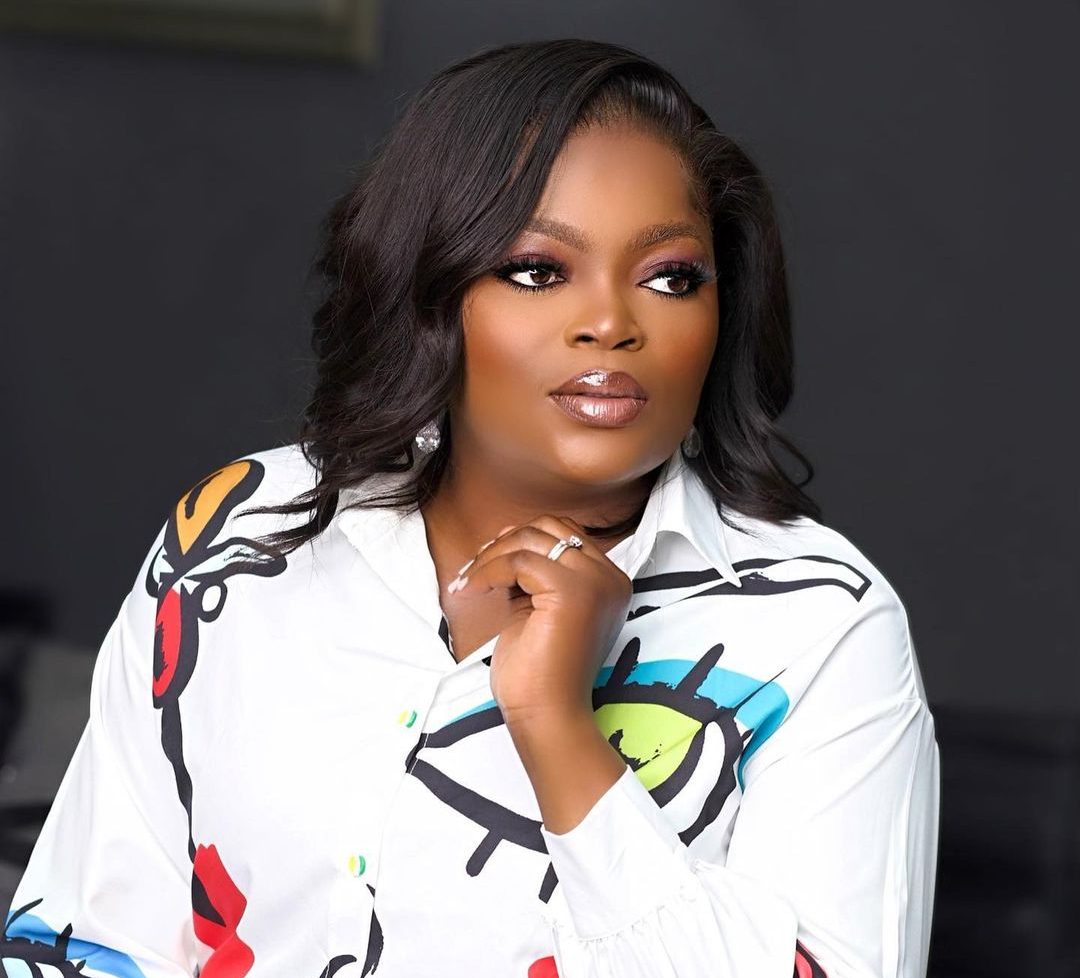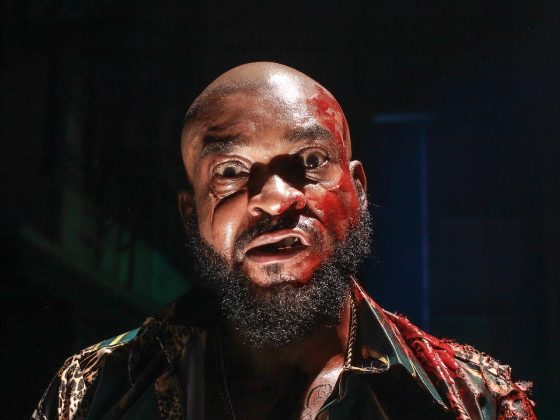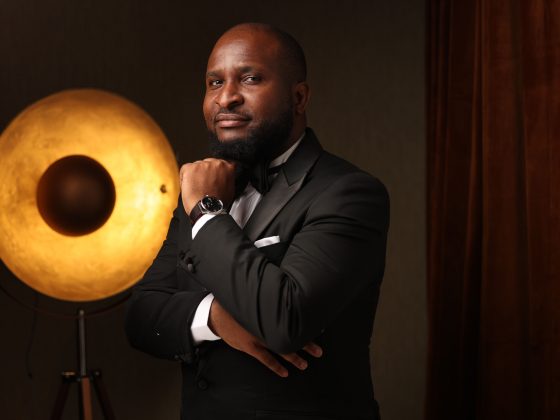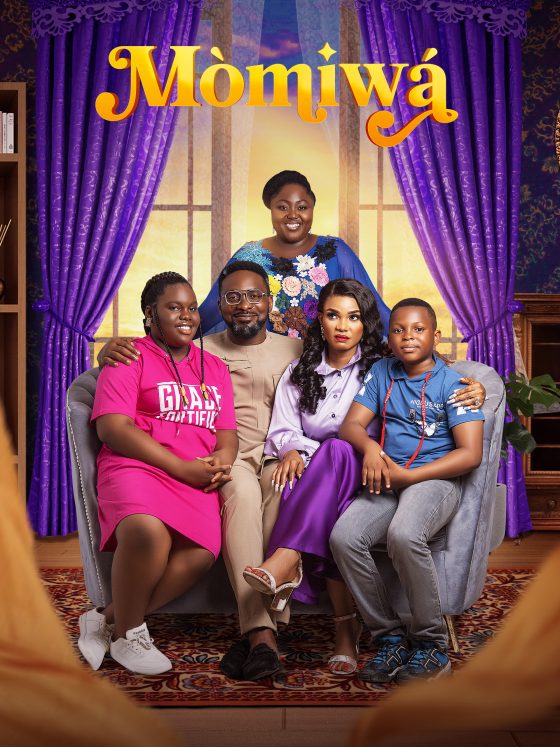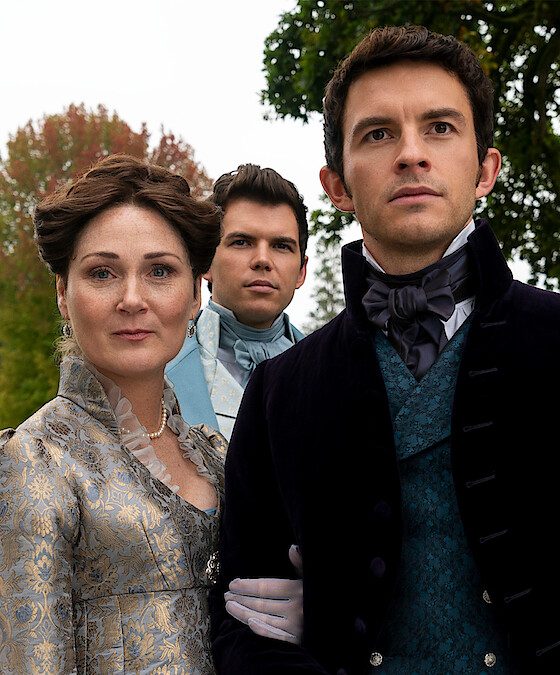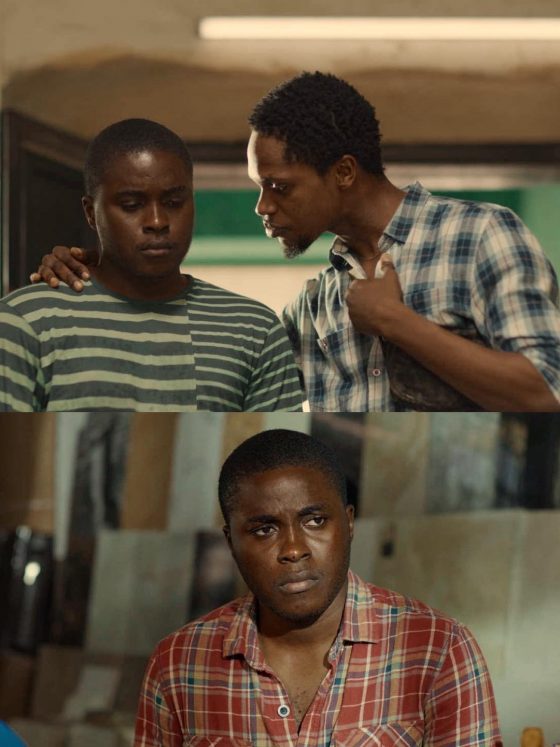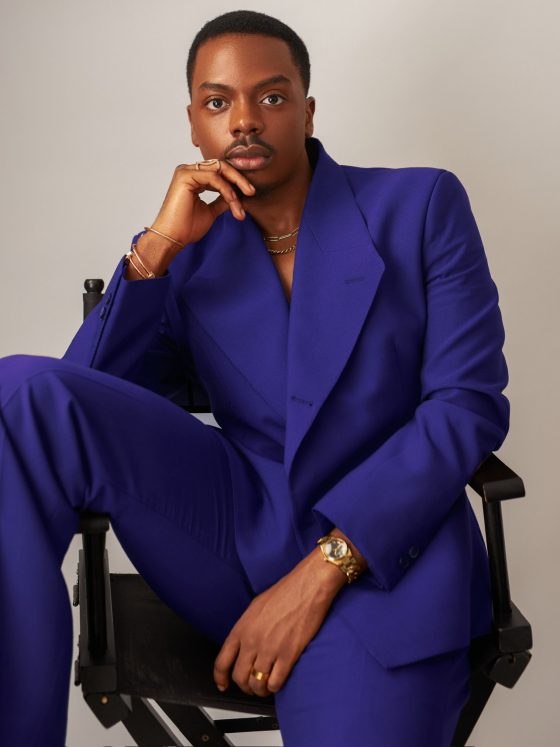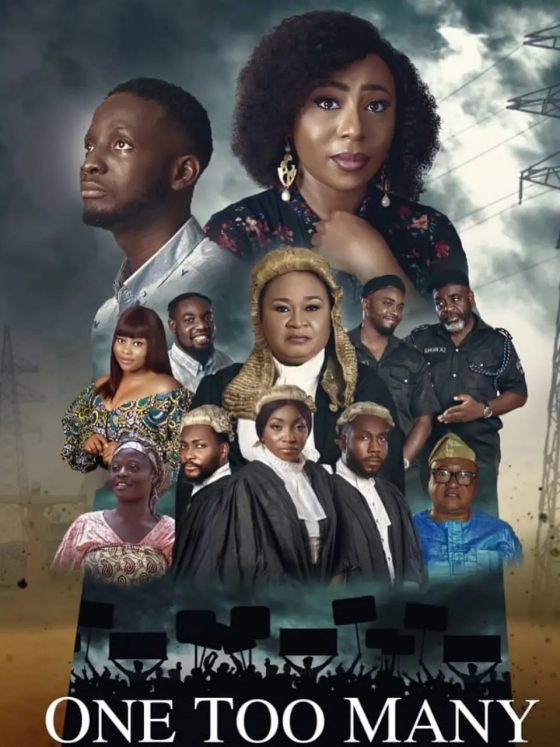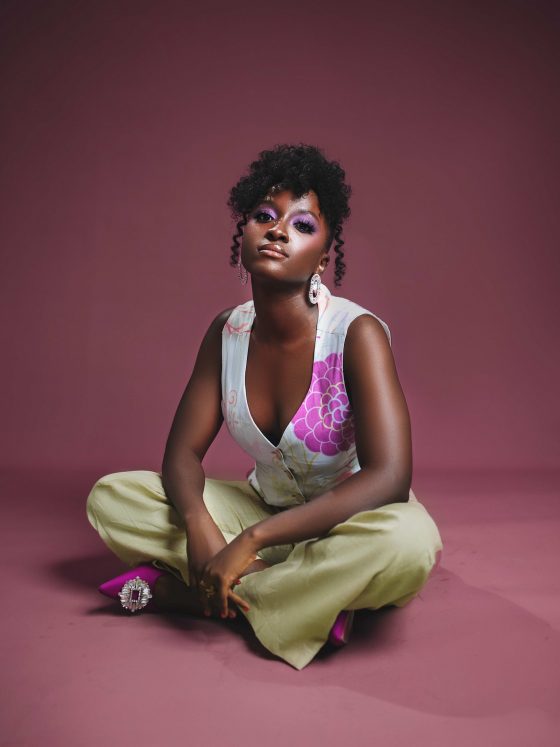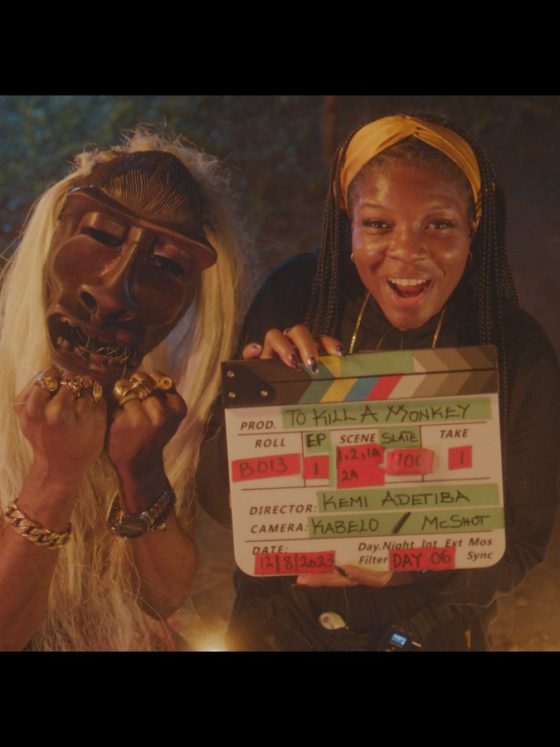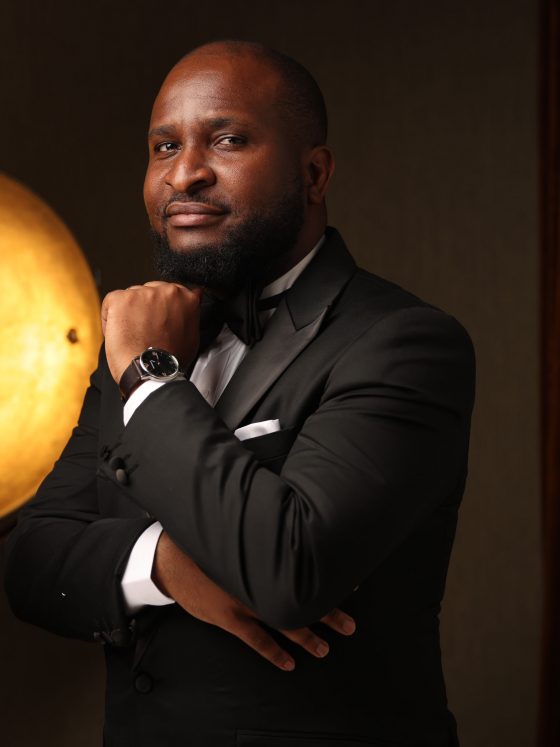Had a bad year?
Not to worry, Funke Akindele is here for you!
We thought we had seen it all when she dropped “Battle on Buka Street’ last year, but ma’am literally said, “Hold my beer,” and graced us with another cinematic masterpiece on the 15th of December. Her latest box office smasher, which she produced and co-directed with Adeoluwa Owu, is titled “A Tribe Called Judah,” and believe me when I say that the movie defies expectations set by both its title and trailer.
I had the pleasure of speaking with the producer and director of the highly acclaimed movie, Funke Akindele, as she graciously answered my numerous questions about the movie, many of which I will be sharing throughout this review.
Funke Akindele, a stalwart of the film industry for over 25 years, has been somewhat on a December movie streak since 2019, starting with her directorial debut, “Your Excellency.”
From her breakout role as ‘Bisi’ in “I Need to Know” to the iconic titular character in the 2008 “Jenifa” movie and then the series, she has consistently charmed audiences, amassing awards and accolades. She took it a notch higher by venturing into successful film production with films like ‘Omo Ghetto: The Saga,’ ‘Battle on Buka Street,’ ‘She Must Be Obeyed’ and now, ‘A Tribe Called Judah.’ Her status as the second director to gross over a billion naira at the Nigerian box office is a testament to the success of her movies.
Commenting on how she picks the right movies to make per time, she said, “I have a lot of stories, but you have to think of what you want at that time, whether it’s a blockbuster or something for the festive period, whether it’s to sensitise or to entertain. Whatever you want to take to the cinema must be something everybody can relate to and something they would love to see. However, in everything I do, I entertain, but I still teach morals.”
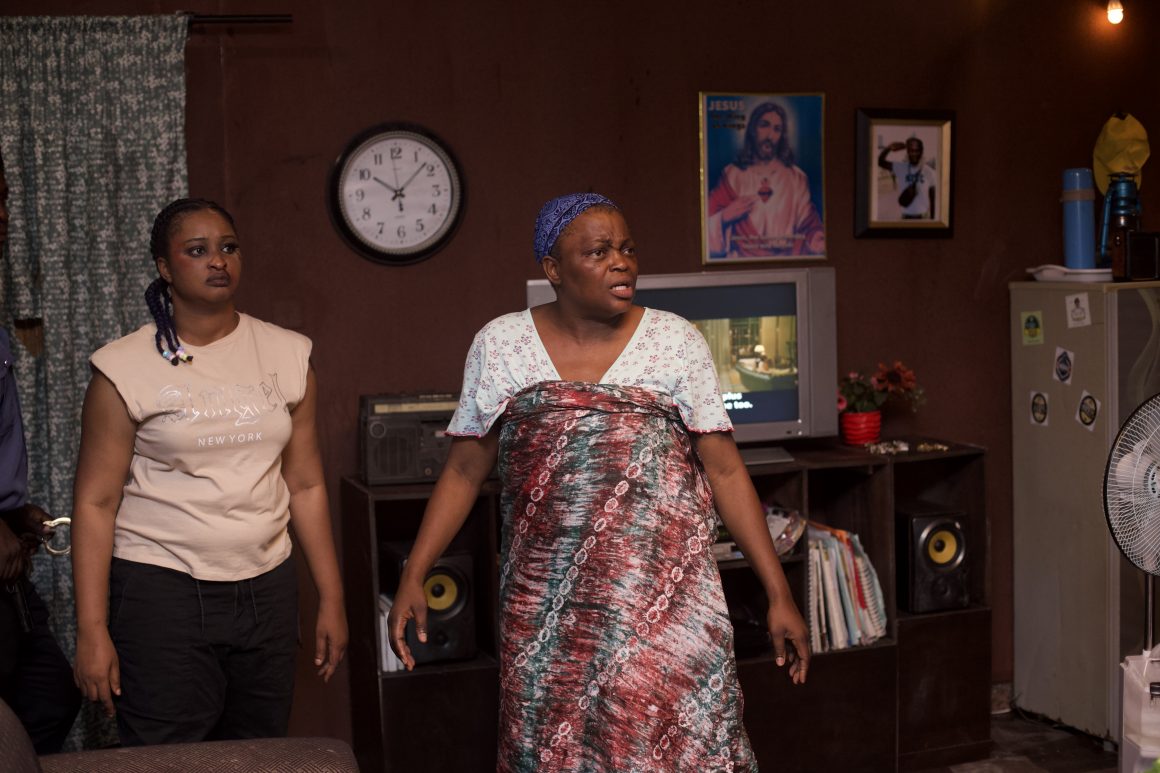
A TRIBE CALLED JUDAH: PLOT SUMMARY
‘A Tribe Called Judah’ tells the story of a mother’s unwavering love for her five sons, irrespective of their unique vices, and the same undaunting love and respect being accorded her by her sons.
Jedidah Judah is a rarity in the sense that she had five sons with five different men from five different tribes. Amid societal shaming, Jedidiah remains resilient, working hard to support her family. Meanwhile, of her five grown sons, only two, Adamu and Emeka, seem to be doing their best to assist her. Pere, on the other hand, is a famed kleptomaniac who is always getting into trouble for stealing, while Shina is basically a “tout” who is constantly moving around with a gang that gets him into trouble with the police multiple times. Ejiro, the lastborn, is the hyperactive younger brother who is blindly in love with his girlfriend and is willing to do whatever it takes to help his family.
When their mother falls deathly ill and returns with a stroke and failing kidneys, their family is thrown into emotional turmoil and helplessness. Upon finding out that Emeka’s former boss keeps millions of dollars in a secret room in the store, the boys hatch a seemingly fail-proof plan to rob the store to enable them to raise enough money for their mother’s treatment.
Things were going pretty well during the robbery until another gang of robbers with the same idea burst in and foiled their operations. This quickly spiralled into a series of dangerous and suspenseful events that the Judah family could never have predicted.
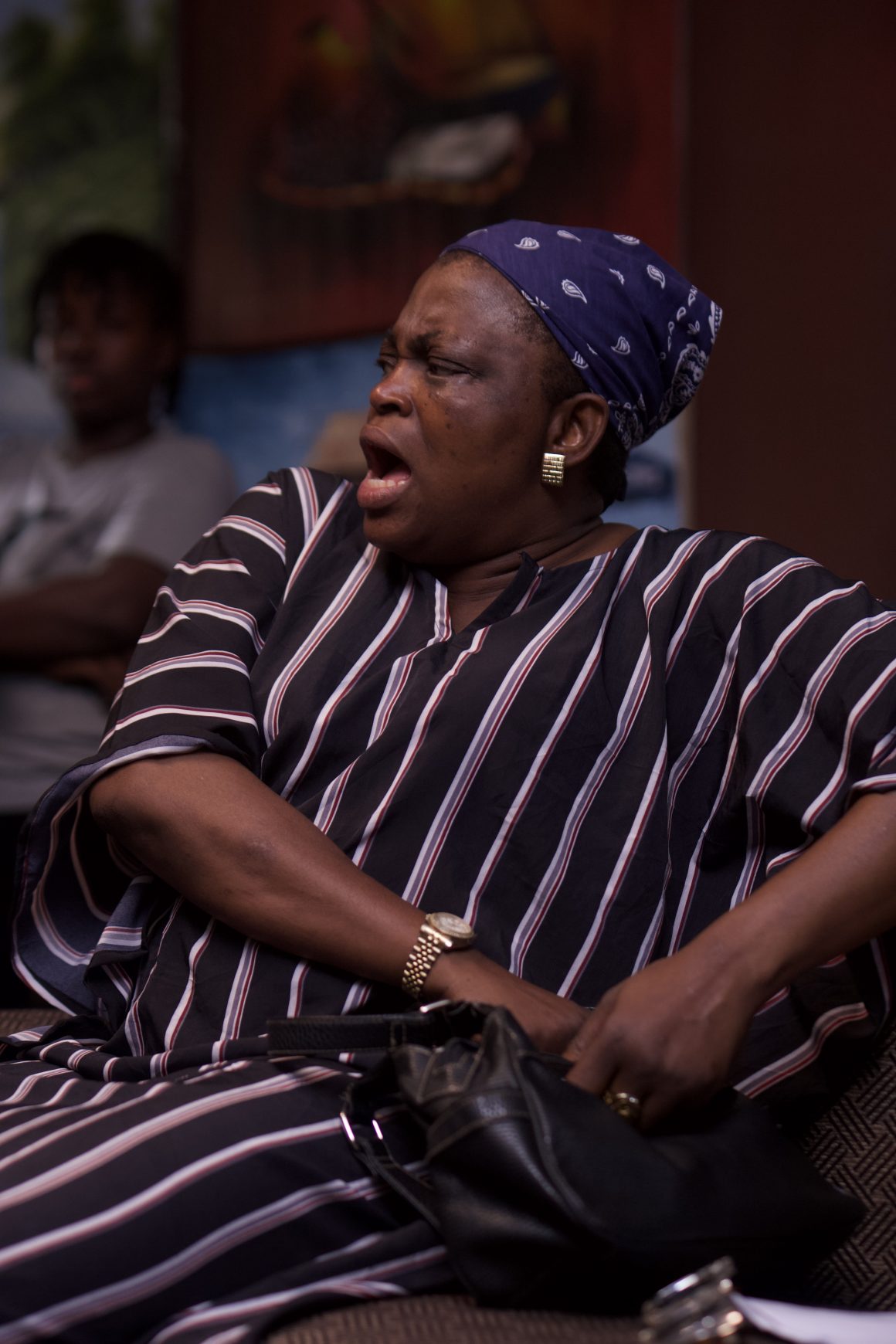
REVIEW
First off, can we talk about the massively aggressive marketing and promotion carried out for this movie, especially by Funke? You have to be living under a rock not to have heard about it. You see Funke Akindele; you see hard work! It’s no surprise the movie made a record-breaking N122 million on its opening weekend, earning her the new nickname “box office queen.”
The seemingly straightforward story gains depth through Akindele and Owu’s directorial talent, unravelling layers and creating a captivating narrative.
Speaking on how she knew ‘A Tribe Called Judah’ was the right movie for this period, she said, “I wanted to shed more light on the challenges single parents face, especially single mothers.” She talked about how people tend to castigate and look down on them without even knowing their backstories.”
She also referred to her mother as a strong inspiration for the character of Jedidah. Being from a broken home, she was raised by her mother alongside three siblings, and although her father tried his best to be present, it was nowhere close to the efforts her mother put in to raise them, especially when financial difficulties arose. “I was rebellious, I remember, but Mum never disregarded me; she was always there to lovingly correct me. Back then, people would also make certain comments saying that we couldn’t amount to anything because we were from a broken home, so yes, the story is very relatable for me,” she said.
The film’s storytelling is its strongest suit, from the skilful introduction and establishment of each character to scenes that carefully play into each character’s strengths and weaknesses, distinguishing each character to the audience such that you could close your eyes throughout the movie and tell who was talking or making certain decisions per time.
Unlike many other family movies where you have just a few members making an impact throughout the story, each of the sons in this movie had distinct characters that were allowed to shine all through, each feeding off the other, forming a unique chemistry that the audience was instantly sucked into. Watching it in the cinema, you could tell the audience members had quickly become emotionally attached to the characters, feeling their every pain, joy, love, anger, etc.
This, of course, is also a testimony to the superb performance by every single cast member, including Funke Akindele herself, Jide Kene Achufusi, Uzor Arukwe, Timini Egbuson, Tobi Makinde, Uzee Usman, Olumide Oworu, Genoveva Umeh, Nse Ikpe Etim, Faithia Williams, Nosa Rex, and many others. These actors clearly understood their roles, and their hard work not only showed; it paid off!
Commenting on the extent to which she went to make sure everyone delivered astounding performances, she said, “I went to the extreme, literally acting out every scene for the actors. I was particular about their expressions and interpretations; they also came with their A games. We prepped with lots of readings and rehearsals before shooting, inputting lots of adlibs and taking out what was unnecessary.”
One actor who stood out to me was Tobi Makinde, not only for his performance but mostly because of his transformation. Known for his role as Jenifa’s always-frustrated personal assistant in the series “Jenifa’s Diary,” Makinde seamlessly embodied the character of Shina Judah.
Typically well-dressed and well-spoken in his role in ‘Jenifa’s Diaries’, Makinde’s portrayal of a “tout” is remarkable, avoiding the overacting tendencies seen in some Nollywood portrayals of similar roles. In “A Tribe Called Judah,” Tobi was gone; all we could see was Shina Judah.
Uzor Arukwe is another worthy honourable mention and has some of the best lines! His comedic timing was nothing short of genius.
The chemistry between the actors, especially the characters of Jedidah and her sons, was almost too good to be true. We just had to ask how they managed to achieve that, and she had this to say: “Having started out as an actor before going into directing and producing, I know first-hand that actors need to be treated right and respected. All I did was pray about it, and I worked with disciplined actors. They are all very dedicated and disciplined; Timini Egbuson, for example, really cared about the story and interpreted his character properly. We all worked together as a family, fostering love and respect. I love working with my colleagues as family members. It is very important to treat your actors right, as they are the essence of the movie.”
Another thing that left us in awe was how the movie expertly navigates between comedy and emotional moments, achieving a rare balance that keeps the audience engaged and invested. One minute, you have tears welling up in your eyes; the next, you’re laughing uncontrollably; and at some point, you have both going on simultaneously. It was real and, in the moment, had audience members emotionally invested, reacting to every word said, decisions made, and actions taken by the characters throughout the movie.
If you watched ‘Battle on Buka Street’, one thing you must laud is the soundtrack, and we’re happy to report that ‘A Tribe Called Judah’ also didn’t disappoint. The soundtracks used served their purposes to the fullest and sometimes, despite being subtle, contributed greatly to certain emotions evoked by the film, which was obvious from the audience’s reactions.
Beyond her stellar acting, Funke’s makeup was a visual narrative on its own, truly portraying her struggles, grief, poverty, pain, etc. Beyond her brilliant acting, the makeup alone told stories of all her scars and burdens, and it was even more evident when her mum showed up halfway through the movie, and she looked much younger than her daughter. It was a visual representation of how suffering, grief, and poverty can make one age up to twenty years.
Speaking to this, she mentioned how she was directly involved in costume and general production design, insisting that the actor’s looks matched the living conditions of their characters, from scruffy hair to rough skin, ungroomed beards, etc., all to help them get into their character.
The SFX and stunts in this movie were also really good. The technical aspects added to the overall cinematic experience, enhancing the realism of key scenes and contributing to the film’s immersive quality.
In two hours and fifteen minutes (which felt like thirty minutes, to be honest), ‘A Tribe Called Judah’ addressed several issues prominent in our society today, including poverty, illiteracy, unemployment, dysfunctional families, liquor abuse, single parenting, japa syndrome, love, greed, and much more.
Needless to say, Funke Akindele has crafted a timeless cinematic gem. The movie’s success so far is a testament to her prowess as an actress, producer, and director.
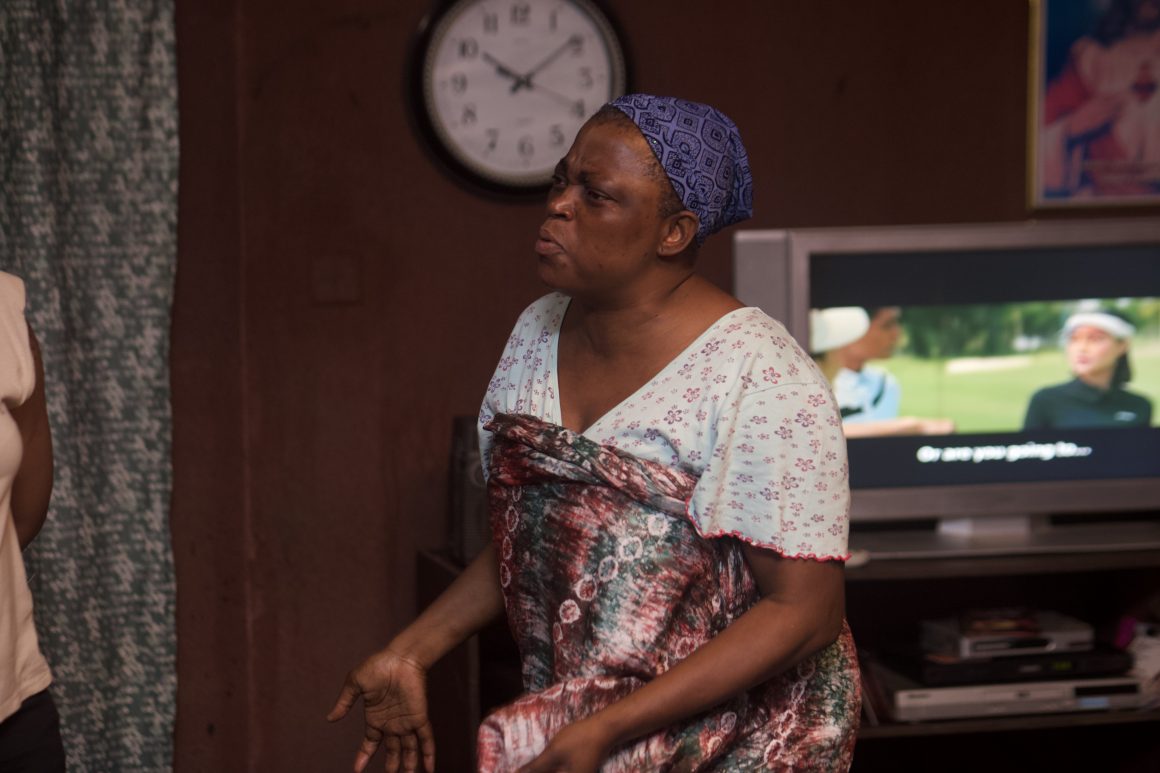
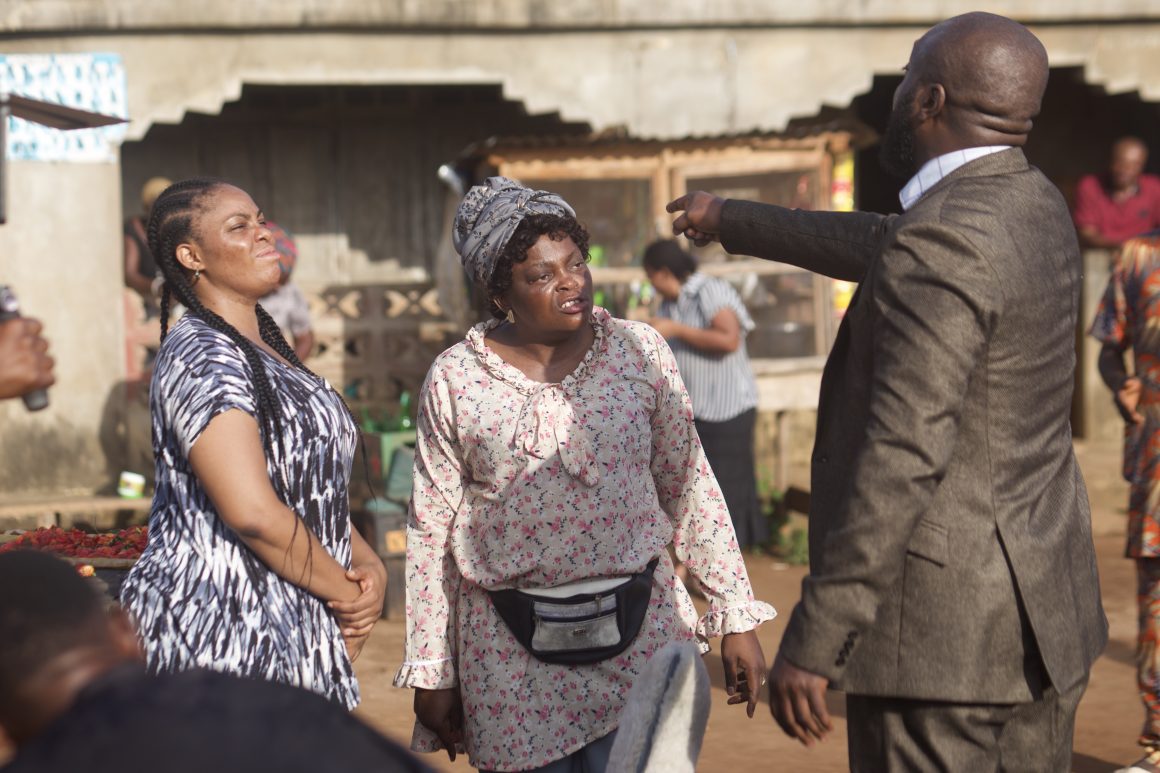
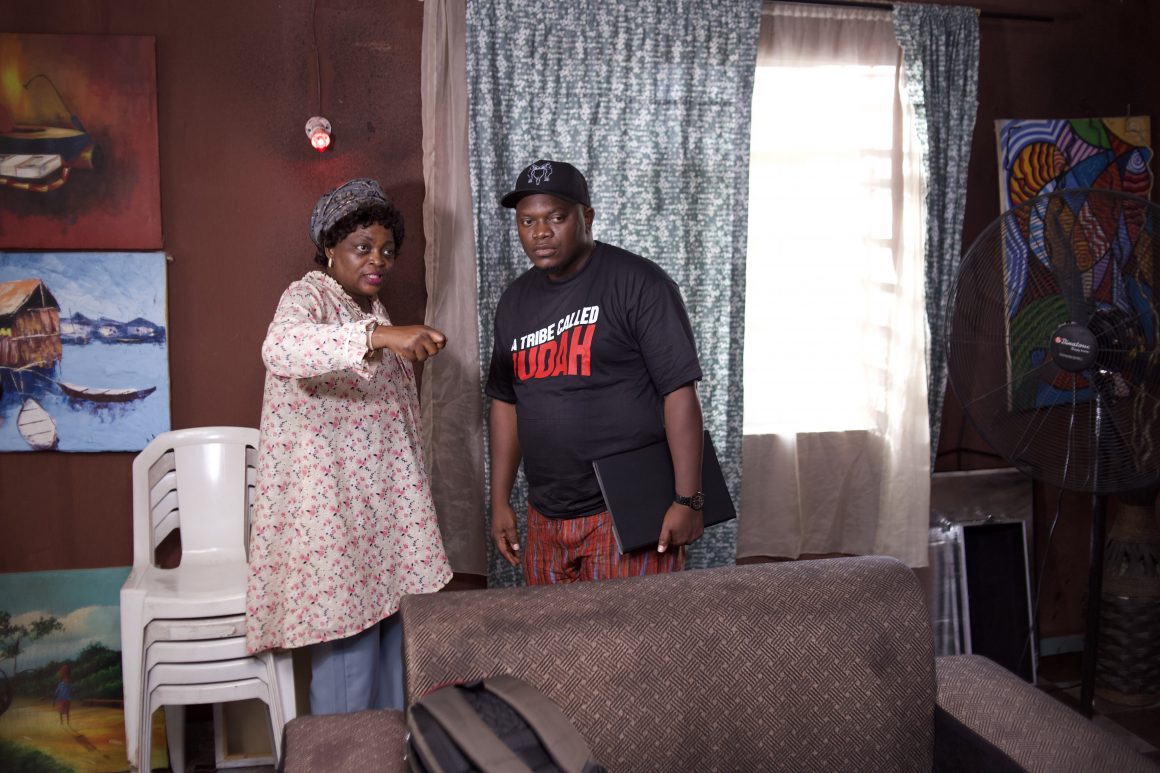


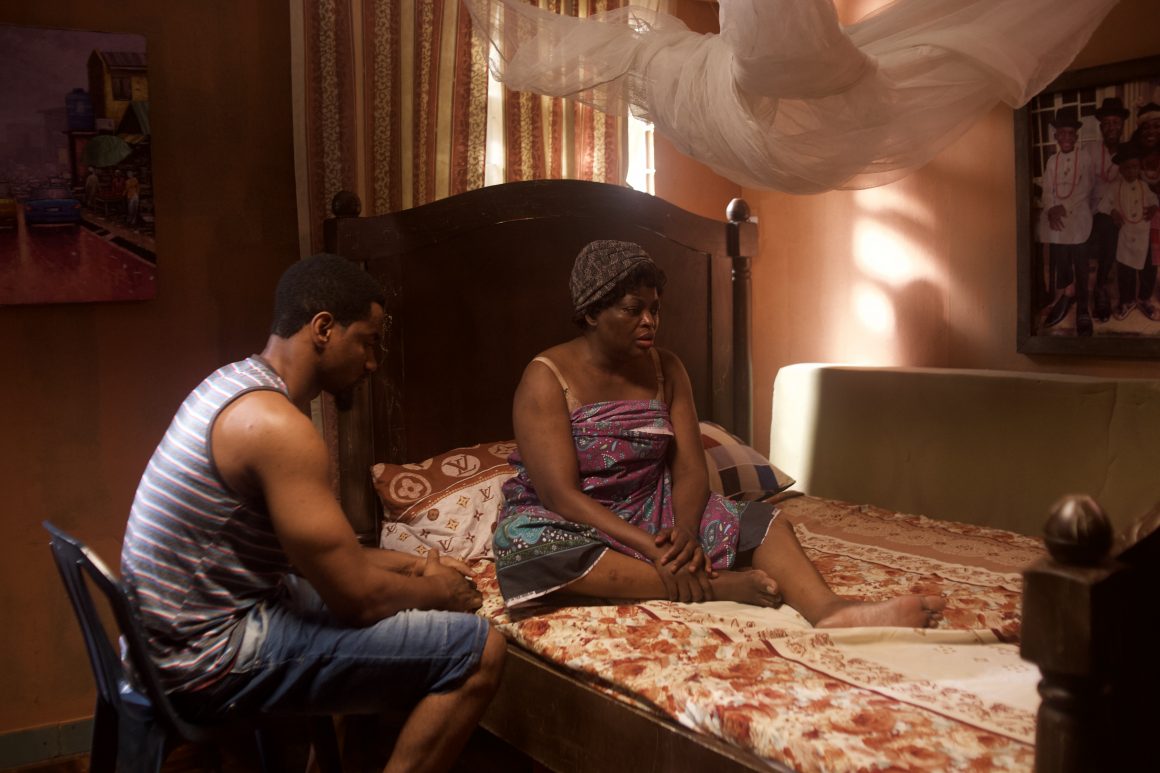
‘A Tribe Called Judah ‘ not only entertains but also resonates with its audience, making us eagerly anticipate Akindele’s future cinematic endeavours. The film is a masterclass in storytelling, character establishment, and the seamless blending of emotion and humour, making it a must-watch for any cinema enthusiast. Akindele’s ability to elevate seemingly basic stories to profound narratives solidifies her as a true Amazon in the Nigerian film industry.
As we await her next creation, ‘A Tribe Called Judah’ remains a remarkable entry into Nollywood’s legacy, showcasing the industry’s capacity for cinematic brilliance.

